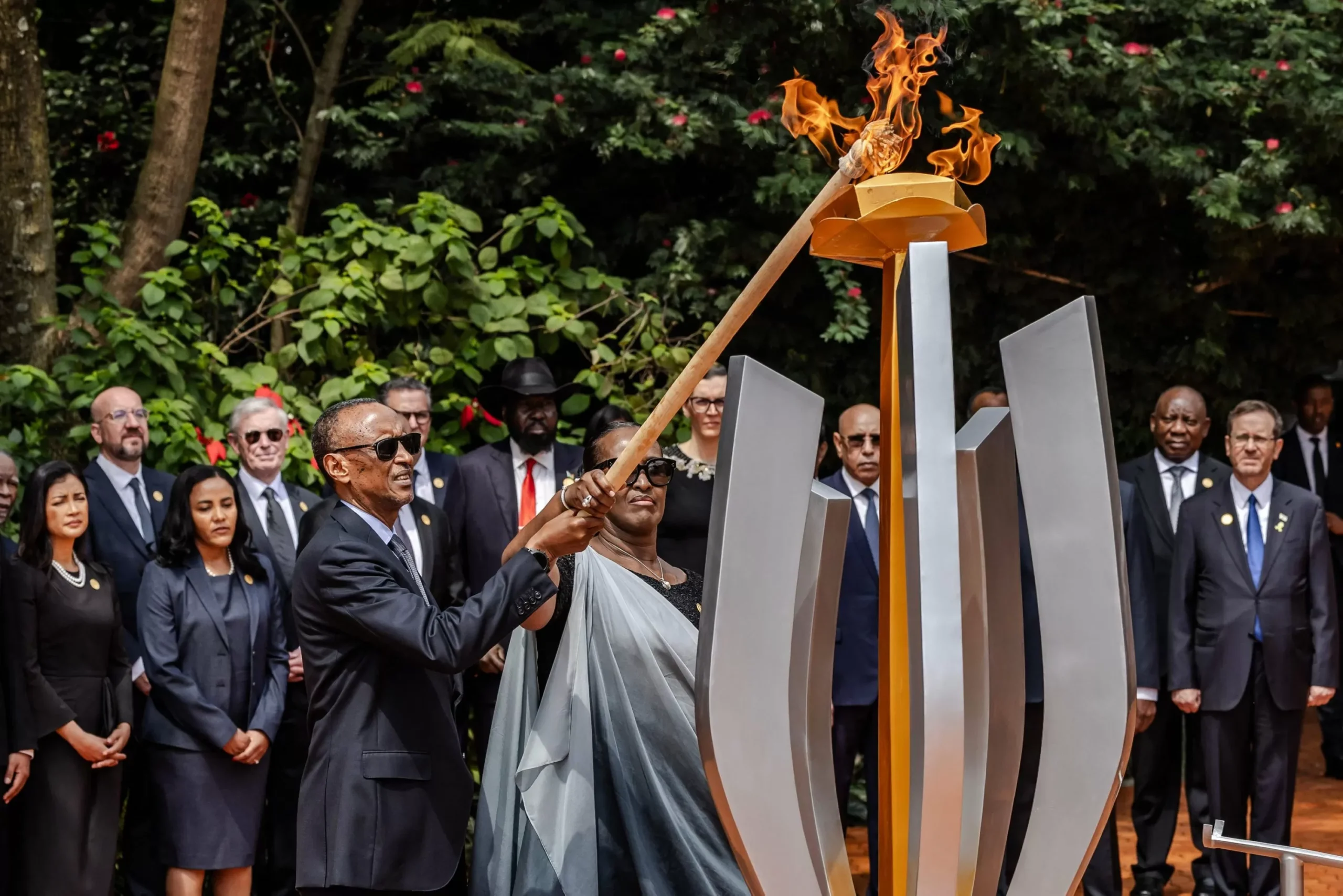Rwanda’s President Paul Kagame has called on the international community to take responsibility for their failure to intervene during the horrific genocide that took place in his country 30 years ago. President Kagame made these comments on Sunday, as he paid tribute to the victims of the 1994 genocide that saw over 800,000 Tutsis and moderate Hutus brutally slaughtered.
In his speech at the country’s main genocide memorial in Kigali, President Kagame expressed his disappointment with the lack of action from the international community during one of the darkest times in Rwanda’s history. He stated, “The international community failed Rwanda and must take responsibility for their inaction.” The president also emphasized that the country has come a long way since then, but the wounds of the genocide still remain.
The genocide in Rwanda was sparked by ethnic tensions between the Hutu majority and the Tutsi minority. It began on April 7, 1994, after the assassination of President Juvenal Habyarimana, a Hutu leader. The Hutu extremists, fueled by propaganda and hate speech, launched a systematic campaign to wipe out the Tutsi community. They were aided by the media, which spread false information and encouraged violence against Tutsis.
During the 100 days of the genocide, the international community largely turned a blind eye to the atrocities taking place in Rwanda. Despite warnings and pleas for assistance from the Rwandan government and the United Nations peacekeeping mission, known as UNAMIR, the international community chose not to intervene. This inaction is seen as one of the biggest failures of the international community, and it resulted in the loss of hundreds of thousands of innocent lives.
President Kagame’s words are a reminder that the international community must not ignore such atrocities in the future. He pointed out that the lack of intervention during the genocide in Rwanda has “laid the ground for other tragedies to occur elsewhere.” The president called for the international community to take responsibility for their failure to act and to work towards ensuring that such horrific events never happen again.
At the same time, President Kagame also acknowledged the progress that Rwanda has made since the genocide. The country has undergone a remarkable transformation, with a stable government, a growing economy, and reconciliation efforts between the Hutu and Tutsi communities. The president also praised the resilience and strength of the Rwandan people in rebuilding their nation.
The commemoration of the genocide serves as a reminder of the importance of unity and reconciliation in Rwanda. President Kagame urged all Rwandans to continue working towards a better future, saying, “We must not allow anything to take us back to the past. We must continue to build a united and prosperous nation for ourselves and future generations.”
The international community has also acknowledged their failure to intervene during the genocide in Rwanda. In 2014, then UN Secretary-General Ban Ki-moon issued a statement admitting the organization’s “failure to prevent and stop the genocide.” The UN has also taken steps to improve their response to mass atrocities and has adopted the principle of “Responsibility to Protect,” which states that the international community has the responsibility to protect populations from genocide, war crimes, ethnic cleansing, and crimes against humanity.
As we reflect on the 30th anniversary of the genocide in Rwanda, it is important to remember the importance of standing up against hate and violence. President Kagame’s words serve as a reminder that the international community must take responsibility for their actions, or inaction, in the face of such atrocities. It is also a call to action for all nations to work towards preventing future genocides and promoting peace and unity.
In conclusion, President Kagame’s speech at the memorial in Kigali was a powerful reminder of the tragedy that took place in Rwanda 30 years ago, and the responsibility that the international community has towards protecting innocent lives. It also serves as a message of hope, as Rwanda continues to move forward and rebuild after the genocide. Let us all learn from the mistakes of the past and work towards a better, more peaceful future for all.




![Complete BritRail Pass Guide [Types, How to Use It, Pros + Cons]](https://inside-news.uk/wp-content/uploads/2025/06/00221EB4-BCA2-4DBB-6CD4-83DBC37D71FA-120x86.webp)
















